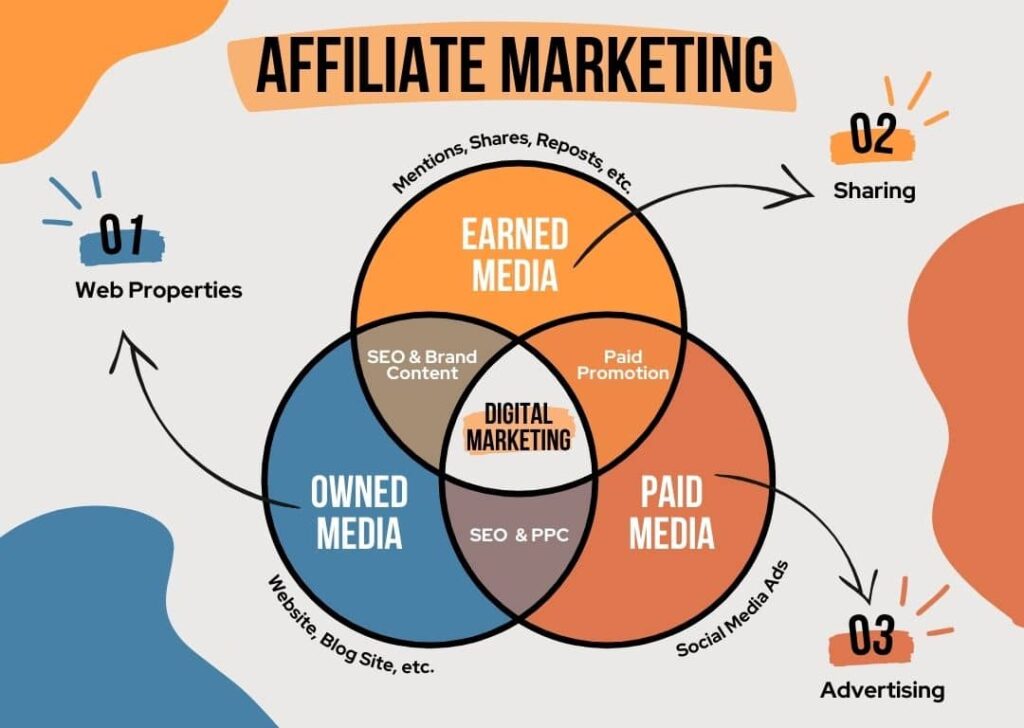Introduction
Affiliate marketing continues to evolve as a powerful digital marketing strategy, offering entrepreneurs and content creators unprecedented opportunities to generate passive income. As we navigate through 2025, the landscape has transformed dramatically, driven by technological advancements, changing consumer behaviors, and innovative marketing techniques.
The Current State of Affiliate Marketing in 2025
Market Overview
The affiliate marketing industry has experienced exponential growth, with global spending projected to reach $36.9 billion by 2024. This surge is attributed to several key factors:
- Increased digital content consumption
- Advanced tracking technologies
- More sophisticated marketing platforms
- Expanded e-commerce ecosystems
Key Trends Shaping the Industry
1. Artificial Intelligence and Personalization
AI has revolutionized affiliate marketing, enabling:
- Hyper-targeted content recommendations
- Predictive analytics for consumer behavior
- Automated content creation and optimization
- Intelligent commission tracking and management
Successful affiliates in 2025 are leveraging AI-powered tools to:
- Analyze audience segments
- Create personalized marketing messages
- Optimize conversion funnels
- Predict potential high-performing products
2. Micro and Nano Influencer Strategies
The era of mega-influencers is giving way to more niche, authentic content creators:
- Micro-influencers (10,000-50,000 followers)
- Nano-influencers (1,000-10,000 followers)
These content creators offer:
- Higher engagement rates
- More targeted audiences
- Greater perceived authenticity
- Cost-effective marketing solutions
3. Video and Interactive Content
Content consumption patterns have dramatically shifted:
- Short-form video content dominates
- Live streaming gains popularity
- Interactive experiences become crucial
- Platform-specific content strategies emerge
Developing a Winning Affiliate Marketing Strategy in 2025
Step 1: Niche Selection and Market Research
Identifying Profitable Niches
- Analyze emerging market trends
- Use tools like Google Trends
- Investigate consumer pain points
- Explore cross-section opportunities
Key Criteria for Niche Selection:
- Passion and expertise
- Market demand
- Competition level
- Potential commission rates
- Long-term sustainability
Advanced Market Research Techniques
- Utilize AI-powered market analysis tools
- Conduct comprehensive competitor research
- Analyze social media sentiment
- Explore emerging product categories
Step 2: Platform and Channel Strategy
Multichannel Approach
Modern affiliate marketers must diversify:
- Blog/Website
- YouTube
- TikTok
- Podcasting
- Emerging platforms
Platform-Specific Strategies:
- YouTube: In-depth product reviews, tutorials
- TikTok: Quick, engaging product highlights
- Instagram: Lifestyle and visual content
- Pinterest: Inspirational and solution-oriented graphics
- Podcasts: Detailed discussions and recommendations
Step 3: Content Creation Excellence
Content Types That Convert
- Comprehensive product reviews
- Comparison guides
- Problem-solving tutorials
- Authentic storytelling
- Case studies and real-world applications
Content Quality Benchmarks:
- High-resolution visuals
- Mobile-optimized formatting
- Clear, actionable information
- Transparent disclosure of affiliate relationships
- SEO-optimized structure
Emerging Content Formats
- Interactive product demonstrations
- Augmented reality experiences
- 360-degree product views
- Personalized recommendation engines
Step 4: Technical Setup and Optimization
Essential Tools and Platforms
- Advanced tracking software
- AI-powered analytics platforms
- Comprehensive affiliate networks
- Conversion rate optimization tools
Recommended Affiliate Networks:
- Amazon Associates
- ShareASale
- CJ Affiliate
- ClickBank
- Impact
- Rakuten Advertising
Performance Tracking Metrics
- Click-through rates (CTR)
- Conversion rates
- Average order value
- Return on ad spend (ROAS)
- Customer lifetime value
Step 5: Compliance and Ethical Marketing
Legal Considerations
- FTC disclosure guidelines
- Platform-specific advertising policies
- Transparent marketing practices
- Data privacy regulations
Best Practices:
- Clear affiliate link disclosures
- Honest product recommendations
- Avoiding misleading claims
- Prioritizing audience trust
Step 6: Monetization and Scaling
Revenue Diversification
- Multiple affiliate programs
- Tiered commission structures
- Recurring revenue products
- Digital product creation
- Sponsored content
Scaling Strategies:
- Systematic content production
- Outsourcing and team building
- Automated marketing funnels
- Continuous learning and adaptation
Conclusion
Affiliate marketing in 2025 demands a holistic, strategic approach. Success requires continuous learning, technological adaptation, and a genuine commitment to providing value to your audience.
The most successful affiliates will be those who:
- Embrace technological innovations
- Prioritize authentic connections
- Create genuinely helpful content
- Remain adaptable and curious
Final Recommendations
- Start small, focus on quality
- Invest in continuous education
- Leverage AI and advanced tools
- Build a personal brand
- Prioritize audience trust


